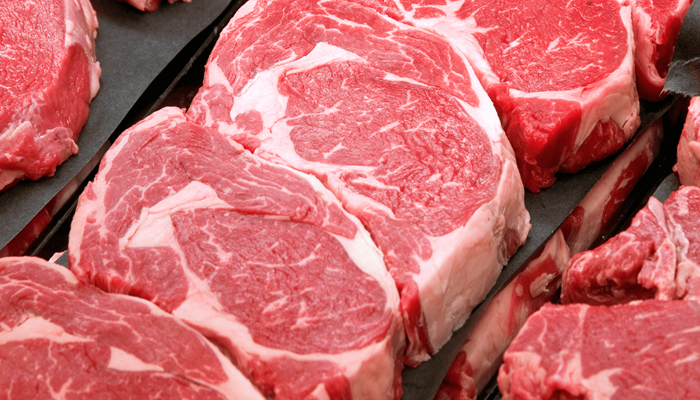In a world where dietary choices are increasingly scrutinized for their impact on health, the environment, and animal welfare, the question of whether to stop eating meat has never been more pertinent. This article aims to provide a comprehensive exploration of this topic, examining the benefits and drawbacks of ceasing meat consumption. We’ll delve into the nutritional implications, environmental impacts, ethical considerations, and cultural significance. Additionally, we’ll include a detailed recipe for a nutritious plant-based meal that can serve as an alternative to meat dishes. By the end, you will have a clearer understanding of the factors to consider when deciding whether to stop eating meat.
Nutritional Implications
Benefits of Reducing or Stopping Meat Consumption
Healthier Heart: Studies show that reducing red and processed meat intake can lower the risk of heart disease.
Weight Management: Plant-based diets tend to be lower in calories and fat, which can help with weight control.
Reduced Cancer Risk: Some research indicates that diets high in red and processed meats may increase the risk of certain cancers.
Improved Digestion: A diet rich in fruits, vegetables, legumes, and whole grains provides fiber that supports digestive health.
Better Blood Sugar Control: Plant-based foods often have a lower glycemic index, which can help manage blood sugar levels.
Potential Challenges
Nutrient Deficiencies: Meat is a significant source of protein, iron, zinc, and B vitamins. Careful planning is necessary to ensure these nutrients are adequately replaced.
Protein Sources: Finding suitable plant-based protein sources like lentils, chickpeas, tofu, and tempeh requires some adjustment.
Meal Planning: Transitioning to a meat-free diet might initially require more time spent on meal planning and preparation.
Environmental Impact
The production of meat has substantial environmental consequences:
Greenhouse Gas Emissions: Livestock farming contributes significantly to greenhouse gas emissions, which drive climate change.
Water Usage: Meat production uses vast amounts of water compared to growing crops for direct human consumption.
Land Use: Large areas of land are required for grazing and growing feed crops, leading to deforestation and habitat loss.
Pollution: Waste from livestock can pollute waterways and degrade soil quality.
Ethical Considerations
Stopping meat consumption can also be driven by ethical concerns about animal welfare:
Living Conditions: Many animals raised for meat live in cramped, unsanitary conditions that do not meet their natural needs.
Treatment During Slaughter: The methods used in slaughterhouses can cause unnecessary suffering to animals.
Supporting Alternatives: Choosing plant-based options can support industries that promote cruelty-free practices.
Cultural Significance
Meat has played a central role in many cultures throughout history, symbolizing prosperity and social gatherings. However, the trend towards vegetarianism and veganism is gaining traction globally, reflecting changing attitudes toward health, the environment, and ethics. In some cultures, such as India, plant-based diets have long traditions and are deeply embedded in religious beliefs. Embracing a meat-free lifestyle can reconnect individuals with these traditions while promoting sustainability.
Detailed Recipe for a Nutritious Plant-Based Meal
Transitioning to a plant-based diet doesn’t mean sacrificing flavor or satisfaction. Here’s a recipe for a hearty and nutritious vegetable curry:
Ingredients
- 1 tablespoon olive oil
- 1 onion, finely chopped
- 3 garlic cloves, minced
- 1-inch piece of ginger, grated
- 2 carrots, diced
- 1 bell pepper, sliced
- 1 zucchini, diced
- 1 cup cauliflower florets
- 1 can (14 oz) chickpeas, drained and rinsed
- 1 can (14 oz) coconut milk
- 1 teaspoon ground cumin
- 1 teaspoon ground coriander
- 1/2 teaspoon turmeric powder
- 1/2 teaspoon cinnamon
- Salt and pepper to taste
- Fresh cilantro for garnish
- Cooked rice or flatbread to serve
Instructions
Heat the olive oil in a large pan over medium heat. Add the chopped onion and cook until translucent.
Stir in the minced garlic and grated ginger, cooking for another minute until fragrant.
Add the diced carrots, bell pepper, zucchini, and cauliflower. Cook for about 5 minutes until slightly softened.
Mix in the chickpeas, coconut milk, cumin, coriander, turmeric, cinnamon, salt, and pepper. Bring to a simmer.
Let the curry simmer gently for 15-20 minutes, stirring occasionally, until the vegetables are tender and flavors are well combined.
Taste and adjust seasoning if needed. Remove from heat and garnish with fresh cilantro.
Serve the curry hot over cooked rice or with flatbread.
Tips for Success
- Adjust spices according to personal preference.
- For added texture, top with toasted nuts or seeds.
- Experiment with different vegetables depending on what’s in season.
Conclusion
To conclude, stopping meat consumption can offer numerous benefits, including improved health, reduced environmental impact, and alignment with ethical values. However, it also presents challenges that need careful consideration, especially regarding nutrient intake and meal planning. Culturally, the shift towards plant-based diets reflects evolving global trends and can honor traditional practices that emphasize sustainability. Whether to stop eating meat ultimately depends on individual circumstances and priorities. With thoughtful planning and creativity in the kitchen, it is possible to enjoy a satisfying and nutritionally balanced plant-based lifestyle. The decision should be made based on a thorough evaluation of personal health, environmental responsibility, and ethical convictions.
Related topics:


